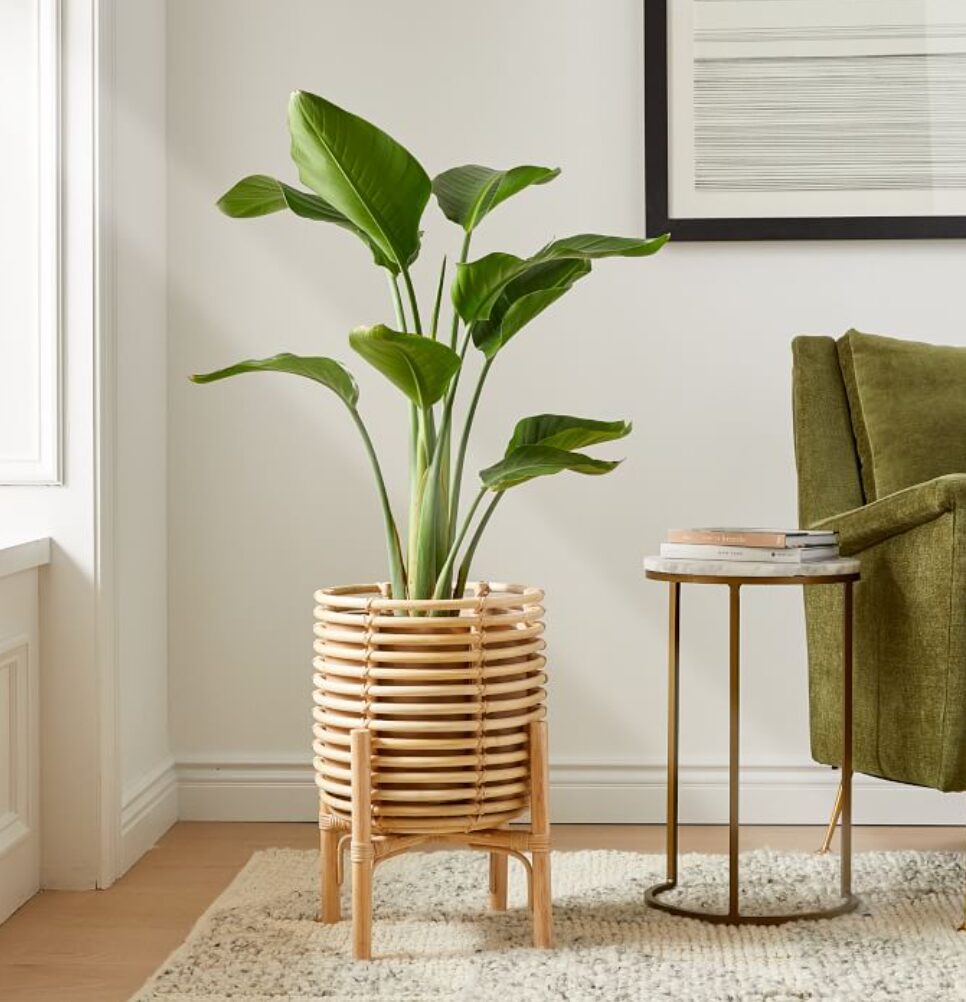In the 1980s, the Japanese Ministry of Agriculture, Forestry, and Fisheries coined a new term: shinrin-yoku, meaning forest bathing. Spending time in green spaces (“bathing” in the light and quiet of forests specifically, but also anywhere there is ample natural space) has proven benefits to health, including lowering one’s stress levels, pulse rate, and blood pressure.
With careful selection of plants (and enough of them), many of these benefits can be replicated in your home.
1. Little change in overall air quality
Although some plants have been shown to purify air in a lab, homeowners would need to plan for a dense, forest-like cluster of foliage to get the same level of purification (about 10 plants per square foot), according to a 2019 study titled “Potted plants do not improve indoor air quality.”
However, the study did point out that air-purifying houseplants may remove some of the pollutants present in the air, albeit slower than occasionally opening your doors and windows. This includes things like paint fumes and that “new carpet smell.”
A single houseplant can’t pull all of the pollutants out of the air in your home, but several in a smaller space can make a difference. To start with, select plants that did show some air purification in a lab. These include:
- – Snake plant (dracaena trifasciata)
- – Peace lily (Spathiphyllum)
- – Spider plant (Chlorophytum comosum)
- – Aloe vera (Aloe barbadensis miller)
- – Boston fern (Nephrolepis exaltata)
Select plants based on your commitment to keeping them alive and how much light your home receives. For example, aloe vera is mostly hands-off, but Boston ferns are finicky when it comes to light and care.
2. Reduced stress
Whether your life is fast-paced and harried or a little less frantic, it’s always nice to come home to de-stress. Houseplants have been proven in many studies to reduce the signs of stress, such as a faster pulse and increased cortisol levels. These signs pop up more often during big life changes, so consider adding a plant or two to your home when things get tense.
3. Humidity control
Investing in specific houseplants can make life inside more comfortable if you live on either end of the humidity spectrum — in a dry, arid climate or a very humid one. Some plants are pros at absorbing excess humidity, while others release moisture back into the room through transpiration (basically plant sweat).
4. Increased positive emotions
Conversely, air-purifying houseplants have another benefit: increasing positive emotions. A comprehensive review of 50 studies published on MDPI.com found that a home with even one or two plants promoted positive feelings and felt more comfortable than homes without plants.
5. Free aromatherapy
Nose blindness is the actual condition of being incapable of judging the smell of your own home. A cat’s litter box, the fish tank, a smelly roommate: People become immune to the aromas wafting through their homes over time. If you’d like to counteract that, choose houseplants with flowers or other pleasant fragrances in their leaves. This includes plants like lavender, rosemary, and jasmine.
6. Better sleep
A sweet-smelling home that feels welcoming and lowers stress levels is just the setting you need to relax and unwind. And when you can lean into this relaxation wholly, there’s a good chance your sleep will improve.
7. Environmentally friendly
Houseplants do not require electricity to thrive. Their water needs are generally minimal. For those reasons, houseplants are an environmentally sustainable way to improve your mental health and overall well-being.
8. Increased productivity
In a study measuring productivity and reaction time, the Horticultural Research Institute (HRI) found that participants with plants in their workspace had reaction times and productivity rates 12% above those who did not have plants. This was especially important for rooms without windows. If you recently moved into a living space that has some dark corners, consider adding a low-light houseplant, especially if you work at home.
Taking the Next Steps
The best air-purifying houseplant for your home is one that is suited to the available light and other growing conditions. To find out which one will work best for you, visit a local nursery or garden center and ask specifically for air-purifying plants.
Beware the Beauty: House Plants That Pose a Hazard to Your Pet


